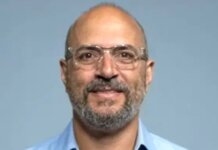 PERSON OF THE WEEK: The 112th Congress is now in session, and it could have a significant impact on how the financial services industry and the housing finance sector operates. To preview what might be expected from Capitol Hill, MortgageOrb spoke with mortgage banking industry veteran Taylor Cottam, an independent risk consultant and editor of EconomyPolitics.com.
PERSON OF THE WEEK: The 112th Congress is now in session, and it could have a significant impact on how the financial services industry and the housing finance sector operates. To preview what might be expected from Capitol Hill, MortgageOrb spoke with mortgage banking industry veteran Taylor Cottam, an independent risk consultant and editor of EconomyPolitics.com.
Q: There is a new division of power in Washington. What impact will this have on shaping the national economic policy, particularly in regard to mortgage banking and housing finance issues?
Cottam: The natural instinct in the Democratic Congress in response to the financial crisis has been increased regulation. This is totally understandable – but, in my opinion, a mistake. The incoming Republican freshmen in Congress, especially the Tea Party, will recoil from this.Â
However, the Tea Party is not in charge. The person who is tapped to become the new chairman of the Financial Services committee, Rep. Spencer Bachus, R-Ala., is not a fan of the Tea Party movement. In fact, despite the fact that there will be a significant wing of Tea Party candidates, the Republicans that will be in control of the committees are more of the same type of loophole-writing deal-makers that got the party thrown out of power in the first place.
However, what I am most fascinated with is the politics that go on behind the scene. With the division of power, the Republicans will likely kibosh the remaining job-killing regulations up for consideration. That's a good thing, but it will also make meaningful reform in the mortgage finance space difficult to achieve.Â
Q: Later this month, the Obama administration is supposed to unveil its plan for government-sponsored enterprise (GSE) reform. What is your prediction for how they will proceed with this?
Cottam: There are really three possibilities: a fully public system, a fully private system or a hybrid system. President Obama is smart enough to know that a Republican-controlled House of Representatives will not approve a fully public system.Â
But predictions are difficult, and a lot will ride on how the new Congress behaves. If the House Republican have broad support, they are likely to attempt to fully privatize the agencies. However, the Obama administration and the Democratic Senate do not seem to trust the private sector to do the right thing. Odds are that any privatization legislation that comes through will likely have serious "oversight" – also known as regulations – which will likely make the entity a quasi-government agency.Â
Q: GSE reform was not addressed by the administration in 2010 – do you think this was the right idea or a mistake?
Cottam: The primary and secondary U.S. mortgage markets are, for all intents and purposes, controlled wholly by the Department of the Treasury. Almost 100% of newly originated assets are guaranteed by the U.S. government, mostly by Fannie Mae, Freddie Mac and the Federal Housing Administration. This is not healthy, and everyone – even down to Barney Frank – knows it.
But the question is, how and when do you ‘reform’ them? The idea is this: Do not perform surgery on a sick patient. Instead, let them recover first.
The idea has some intellectual appeal, but it is flawed – most importantly, because it is housing that made us sick in the first place. As long as housing is artificially propped up through government intervention, it will not be able to find a bottom.Â
Having the government guarantee mortgages will reduce the credit spread, which lowers the rates and affects affordability – and, consequently, home values. Remove the guarantee, and we also see a negative ripple in housing prices.Â
Q: Rep. Ron Paul, R-Texas, a longtime opponent of the Federal Reserve, is going to be the new chairman of the House Subcommittee on Domestic Monetary Policy. What impact will Paul's chairmanship have on the Federal Reserve?
Cottam: Paul, of course, would like to ‘end the Fed.’ That won't happen, but he could make life more sweaty for the Federal Reserve with increased audit powers and endless questioning. He will have the power to bring Chairman Bernanke before his subcommittee as he deems necessary. Expect this to happen with greater frequency, and expect the meetings to be lively. Also, expect some other officials to start fretting over the political independence of the Fed.
It's a real long shot, but Paul may introduce legislation to get the Federal Reserve out of the employment picture altogether. Personally, I'd just like them to stick to keeping the money supply stable.Â
Q: In 2011, Sheila Bair will conclude her chairmanship of the Federal Deposit Insurance Corp. Do you have any predictions on her possible replacement?
Cottam: It is difficult to say, but I would expect, in this charged environment, an unconventional replacement from the outside.Â
Q: In 2010, all 50 state attorneys general banded together to investigate the robo-signing controversy. Do you expect to see more state-level impact on national economic policies in 2011?
Cottam: In my opinion, the robo-signing controversy was and is a non-issue. It is a procedural shortcut, but still likely illegal. This will be cleared up through the courts. But the issue has served to open everyone's eyes to the real problem, which is incorrect documentation and labeling. The robo-signing controversy is only alerting the banks that they have no idea what is on their books and what is in some of their mortgage-backed securities packages.













